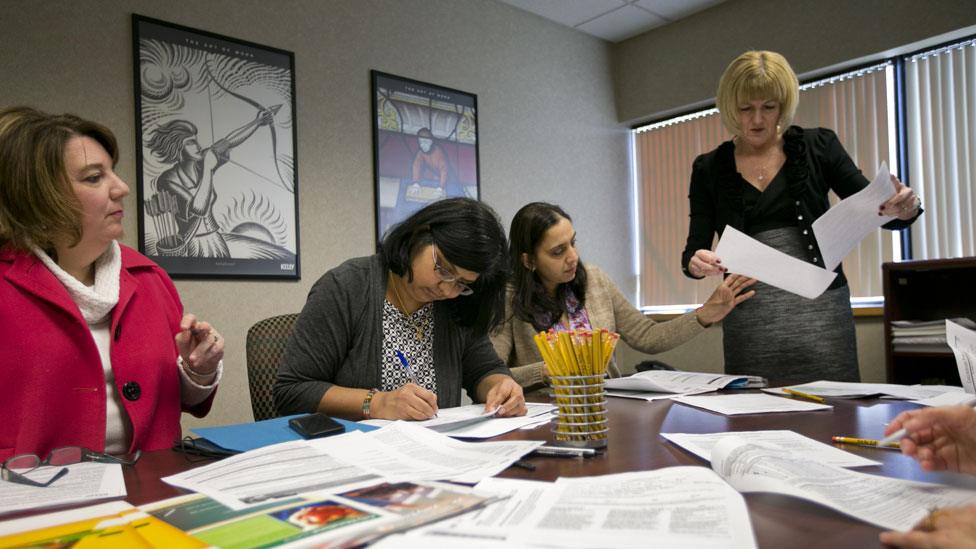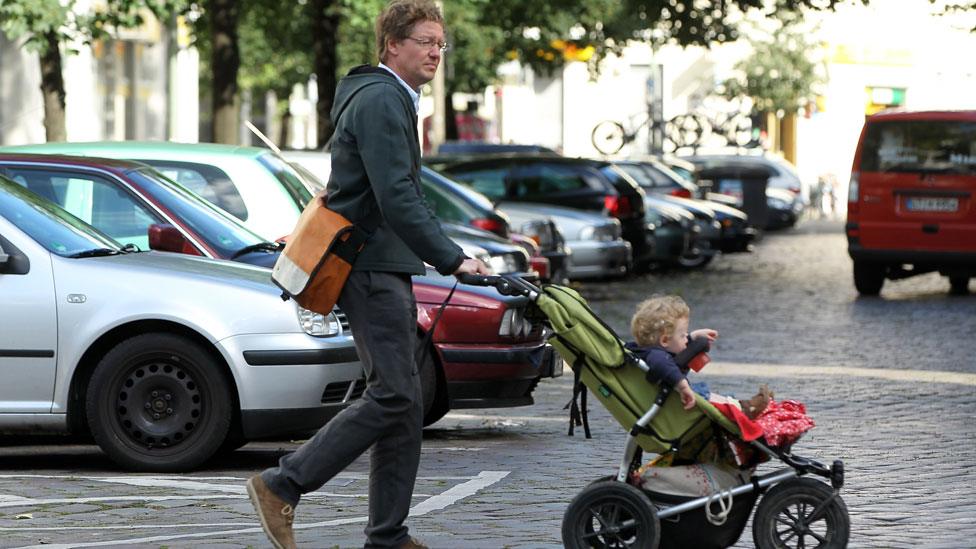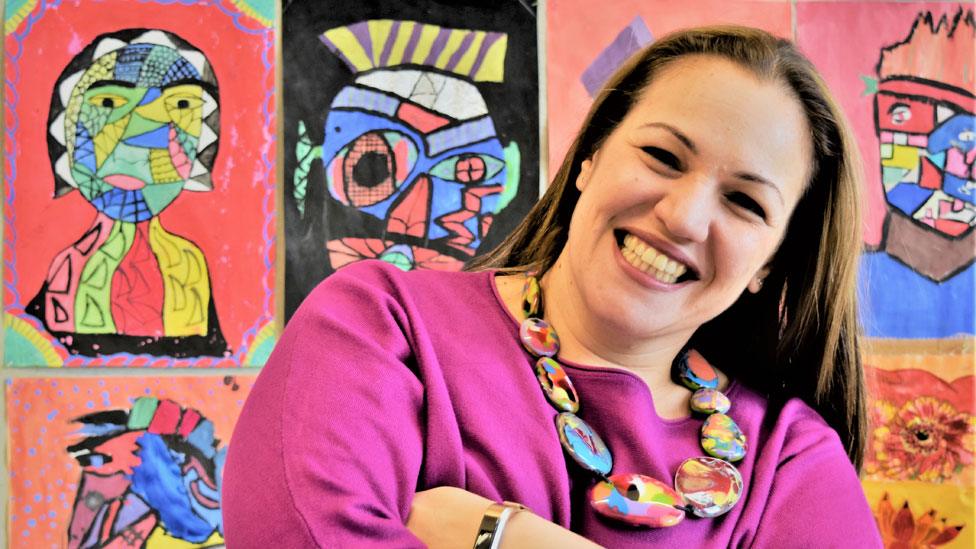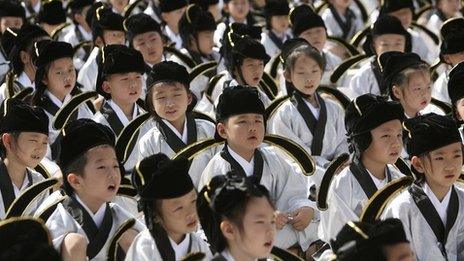Where do teachers get the most respect?
- Published

The teaching profession has a high public status in China
If teachers want to have high status they should work in classrooms in China, Malaysia or Taiwan, because an international survey suggests these are the countries where teaching is held in the highest public esteem.
But their colleagues in Brazil, Israel and Italy are at the other end of this "teacher status index", based on research from the National Institute of Economic and Social Research and the Varkey Foundation.
The UK is in the upper half of the rankings of 35 countries, with the teaching profession held in higher regard than in the United States, France and Germany.
But China leads the way - with 81% believing that pupils respect their teachers, compared with an international average of 36%, in a survey of 35,000 people.
Culture of respect
In Europe and South America there were "generally higher levels of pessimism about students' respect for teachers".
This culture of respect seems to be particularly strong in Asia, including countries such as South Korea and Singapore.

There seems to be a shift in public opinion away from wanting teachers' pay to be linked to results
Pupils in these countries are also top performers in international tests and the researchers suggest that a well-regarded teaching profession, which can attract talented staff, seems to go hand-in-hand with high standards.
Another way of looking at the perceived status of teaching was to ask if people saw it as a desirable career for their own children.
In China, India and Ghana, high numbers of families would encourage their children to become teachers.
But in Russia, Israel and Japan it was more likely that parents would actively discourage children from entering the profession.
In the UK, only 23% of adults would push their child to become a teacher, the ninth lowest among the countries surveyed.
The study of public attitudes also asked about teachers' working lives.
In most of the countries examined, the public underestimated teachers' working hours - whether it was New Zealand, which had some of the longest, or Panama or Egypt, with some of the lowest.

Would people want their own children to become teachers when they grow up?
The exceptions to this were two of the highest-achieving education systems - Canada and Finland - where the public thought their teachers were working even more hours than they were in reality.
Teachers in the UK worked the fourth longest hours, more than 50 a week, including work at home such as marking.
Performance pay out of fashion
The study is a follow-up to similar research on attitudes to teaching five years ago.
Among the biggest differences was the shift in opinion on performance-related pay for teachers, which had been much in discussion at the time.
In every country, support for linking teachers' pay to results had fallen between 2013 and 2018.
In Finland, it had dropped from 80% in favour to 21% and in the UK, backing for performance pay had gone down from 74% to 34%.
The survey has been published by the Varkey Foundation education charity, organisers of the Global Teacher Prize, which aims to raise the profile of teaching.
Sunny Varkey, founder of the foundation, said: "This index finally gives academic proof to something that we've always instinctively known - the link between the status of teachers in society and the performance of children in school.
"Now we can say beyond doubt that respecting teachers isn't only an important moral duty - it's essential for a country's educational outcomes."
Top 10 for teacher status
China
Malaysia
Taiwan
Russia
Indonesia
South Korea
Turkey
India
New Zealand
Singapore

More from Global education
The editor of Global education is Sean Coughlan (sean.coughlan@bbc.co.uk).
- Published18 March 2018

- Published14 October 2013
